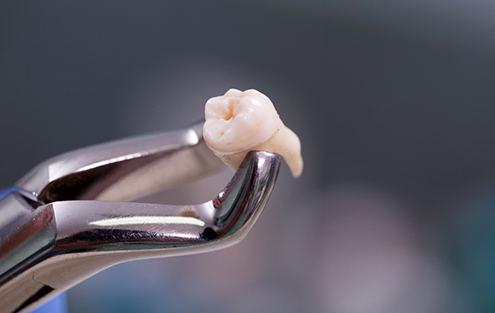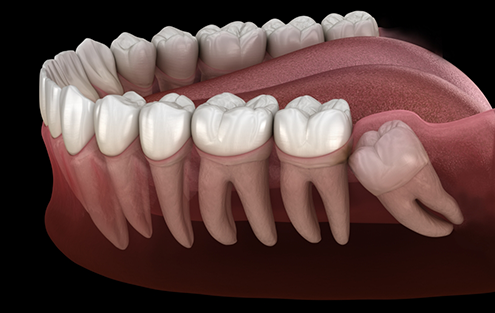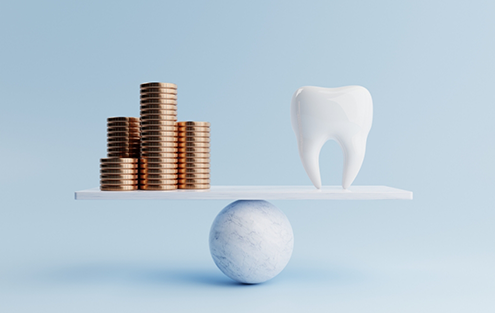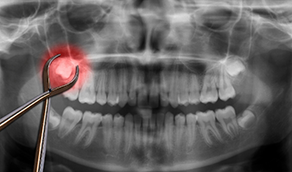Wisdom Tooth Extractions Torrance
Safe Removal When Unnecessary Teeth Get in the Way

At Blue Coast Dental Group, we provide services for patients of all ages, and as your child grows, there are certain milestones and what we call “rites of passage” many will experience along the way. One of these is wisdom tooth extractions in Torrance, CA. Although not all patients need their wisdom teeth removed, it is often a common and necessary procedure for pre-teens, teenagers, and even some adults. If the word “extraction” sounds scary, don’t worry. Our team of expert dentists and staff make patient comfort our top priority, so if it’s time to say goodbye to those third molars, trust that you’ll have a safe and effective procedure that will result in optimal oral health. If you’re ready to schedule a consultation with one of our dentists, call our dental office today.
Why Choose Blue Coast Dental Group for Wisdom Tooth Extractions?
- Trusted Team of Dental Experts on Staff
- We Treat Dental Patients of All Ages
- Your Dental Insurance is Welcome
What Are Wisdom Teeth?

When looking at a diagram of the mouth, you’ll notice there are large molars that appear on each side of the jaw. They are the last ones in the back and are considered your “third molars.” Typically, these are the last to erupt through the gumline, but some patients never experience an eruption. Oftentimes, wisdom teeth can become impacted because, by the time they try to push through, there isn’t enough room for them. When this happens, swelling, pain, and tenderness can occur, resulting in the need for wisdom teeth extractions in Torrance.
Why Do I Need My Wisdom Teeth Extracted?

When considering why you might need a wisdom tooth extracted, there are a few reasons, including:
- Your tooth is impacted, meaning it has not erupted through the gumline.
- It is causing immense pain and sensitivity.
- The tooth is pressing against your nearby teeth, causing them to shift and become misaligned.
- It is developing out of alignment or at an angle.
It may also be necessary to remove wisdom teeth if one of our dentists is concerned about potential oral health problems that could develop in the future.
Do All Wisdom Teeth Need to Be Removed?

No, they do not. Some people spend their entire lives never having to experience wisdom tooth extraction. If your wisdom teeth are healthy, are fully erupted, are positioned correctly, and can be easily cleaned, there may be no reason at all to have them removed.
It will ultimately be up to one of our dentists to determine if you need a wisdom tooth extraction.
How Does the Wisdom Tooth Extraction Process Work?

This common procedure is considered routine, and your dentist will be able to perform it in a short amount of time. Administering general anesthesia, we will numb the area(s) in which the teeth need to be removed.
Then, if the tooth has partially erupted, the dentist will gently rock the tooth back and forth until it detaches. However, if the tooth is impacted, a small incision in the gumline will be made and the dentist will begin the removal process. If necessary, your tooth may need to be cut into pieces for easier removal.
Once the tooth is removed, you will bite down on a piece of gauze for 30-45 minutes. This will reduce the amount of bleeding and encourage a blood clot to form. You will most likely experience some swelling and pain, but we will prescribe the necessary medication to help relieve discomfort. Make sure to take any pain medication or antibiotics as instructed.
You will want to avoid sipping through a straw or spitting to prevent the blood clot from dislodging. It is also important that you spend an ample amount of time relaxing and resting after your procedure.
Understanding the Cost of Wisdom Tooth Extractions

Even if you need a wisdom tooth pulled, you may worry about the price. That’s only fair – a procedure is only helpful if it doesn’t exceed your budget. In truth, though, the cost of wisdom tooth extractions varies by patient. You’ll need to meet with our dentists for an exact treatment estimate. Still, you can trust Blue Coast Dental Group to make your care affordable. Our team will walk you through the relevant cost factors and available financing options.
Factors That Can Impact the Cost of Wisdom Tooth Extractions

At the initial consultation, we’ll assess several factors that affect wisdom tooth removal costs. The most common of these are:
- How Many Wisdom Teeth Need Removal – Naturally, the treatment price rises as you need more wisdom teeth removed. The cost will be less if you don’t have all four and only need a few pulled.
- Whether the Teeth are Impacted – Because impacted wisdom teeth need surgery, pulling them can get expensive. Furthermore, the impaction type also influences the final cost.
- A soft tissue impaction is usually less costly. After all, it applies when a wisdom tooth wholly or partially emerges from the gums.
- In contrast, a bony impaction has a higher price. It requires a surgeon to remove a tooth lodged in the jawbone - a complex process.
- Type of Anesthesia/Sedation Needed – Based on the kind of extraction you need, anesthesia or sedation may be involved. You’ll have to pay extra should that happen.
Does Dental Insurance Cover Wisdom Tooth Extractions?

Unfortunately, not all dental insurance plans cover wisdom tooth extractions. That said, most will at least offer partial coverage. (Assuming, of course, that you’ve met your yearly deductible or maximum.).
Naturally, there are exceptions. Some policies may not cover any portion of wisdom tooth removal. Therefore, confirm your benefits with your insurance provider first. Our office can even help you do so if necessary.
How to Make Wisdom Tooth Extractions Affordable

Even if you lack insurance, wisdom tooth extraction can still be affordable. You just need to find suitable payment options with the right dental practice.
Consider our own Blue Coast Dental Group, for example. Our practice happens to provide:
- In-House Dental Plans – In exchange for a low annual fee, we’ll give you (among other things) a 20% discount on wisdom tooth extraction.
- Special Offers – Our office is currently running a special offer for new patients. Should you take it up, you can get a consultation visit with full digital X-rays for only $98.
- Flexible Financing – We happen to work with CareCredit, a reputable third-party financier. Through them, a patient can cover treatment costs in monthly, low-interest installments. You could meet a procedure’s price gradually instead of all at once.
Ultimately, we at Blue Coast Dental Group want to make the cost of wisdom tooth extractions bearable. Given that fact, book a visit with us to learn more details – financial and otherwise – about treatment.
Wisdom Teeth Extractions FAQs
Do Wisdom Teeth Extractions Hurt?
One of the most common questions about wisdom teeth extractions (or any dental work) is whether the procedure will hurt or not. Fortunately, if you’ve been wondering about something similar, you’ll be happy to know the process is relatively pain-free! That’s because the first step is to use a local anesthetic to numb the area entirely. Once it’s time to leave the treatment chair, we will provide you with a list of aftercare instructions designed to keep you as comfortable as possible, including using a cold compress and taking OTC or prescribed pain medication as directed.
How Long Does It Take to Recover from Wisdom Teeth Extractions?
Typically, the recovery process takes around three to four days. However, it can take up to a week depending on how many teeth are extracted and whether or not they are impacted. In the days following the procedure, some swelling around the extraction site and in your cheeks is expected. Around the 7–10-day mark, the stiffness and soreness should subside as well.
What Foods Can I Eat Following My Wisdom Teeth Extraction?
After your wisdom teeth are removed, it is of the utmost importance that you avoid hard, chewy, or crunchy items, which can inflame and irritate the extraction site. Instead, stick to soup, yogurt, scrambled eggs, cottage cheese, and other soft foods. You should also quit poor dental habits, like smoking and chewing on ice. Indulging in either of these can significantly delay the healing process and potentially cause complications.
How Can I Speed Up the Healing Process After Wisdom Tooth Extractions?
The healing process can be a bit boring, especially if you are usually on the go. If you are looking to speed up your recovery, there are a few best practices you can implement:
- Focus on resting for the first couple of days. Pushing yourself too soon can dislodge the blood clot and cause further complications.
- Use a cold compress. Placing an ice pack against the outside of your cheeks for 20 minutes at a time can reduce puffiness and discomfort.
- Avoid hot foods and beverages. Extremely warm items can prolong sensitivity and delay healing. If you choose to drink coffee or tea, make sure it’s lukewarm.
- Gently rinse with salt and water. After the first day, gently rinse with a mixture of salt and warm water. This solution acts as a natural disinfectant and will keep the area clean.
Does Everyone Have Wisdom Teeth?
Surprisingly, no. Not only do certain people have less than four wisdom teeth, but some individuals never develop them. The exact reason for this is not fully known. It likely has something to do with genetics, as you may have fewer than four wisdom teeth if one of your parents did as well. The best way to know for sure how many wisdom teeth you have (and determine whether they will need to be removed) is to have your dentist take an X-ray of your jaw.
How Should I Prepare for My Wisdom Tooth Extraction?
First of all, if you have any questions or concerns regarding your wisdom tooth extraction, you should let your dentist know immediately. The more information you have, the easier it is to properly prepare for the procedure.
Additionally, you will be given some instructions on what you should do before the treatment begins. Here are some steps you might be told to follow:
- If IV sedation or oral conscious sedation is administered, plan on having someone else drive you to and from your appointment.
- Avoid cigarettes and other tobacco products for at least 12 hours before extraction.
- Make sure that you come to your appointment with loose, comfortable clothing. In cases where IV sedation will be administered, it’s best to wear a short-sleeved shirt. (If you do wear long sleeves, they should be the kind that can be rolled up easily.)
- Stock up on the right kinds of foods. Your fridge and pantry should contain plenty of soft foods that you can enjoy while your mouth is recovering.
- People who typically use contact lenses may want to wear glasses instead on the day of the extraction. This is because you will likely keep your eyes shut while the procedure is being performed.
What’s the Best Age to Have Wisdom Teeth Removed?
There is technically no upper age limit for wisdom tooth extraction; any adult with problematic wisdom teeth can have the procedure performed. However, early adulthood is usually considered the best time to have wisdom teeth taken out. This is because the wisdom teeth will gradually grow longer and become more embedded in the jaw over time, thus making them more difficult to remove. Consequently, the surgery may be more complex, and it could take your mouth longer to heal afterward.
In short, if your dentist recommends a wisdom tooth extraction, it’s best to have it performed as soon as you can instead of waiting.
Do Wisdom Teeth Stitches Dissolve?
Oftentimes, the stitches used to help your mouth heal after your wisdom tooth extraction will be designed to eventually dissolve on their own. The exact amount of time it takes for the stitches to dissolve is typically influenced by the size of the stitch, the materials used, and how complex the extraction is.
However, not all stitches are made to dissolve, which means you will need to have them removed manually. This is normally done about 7-10 days following the extraction.
